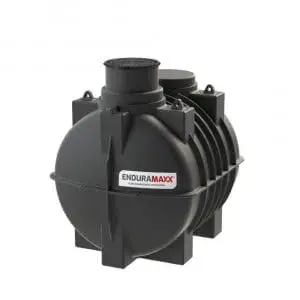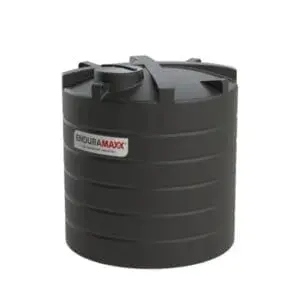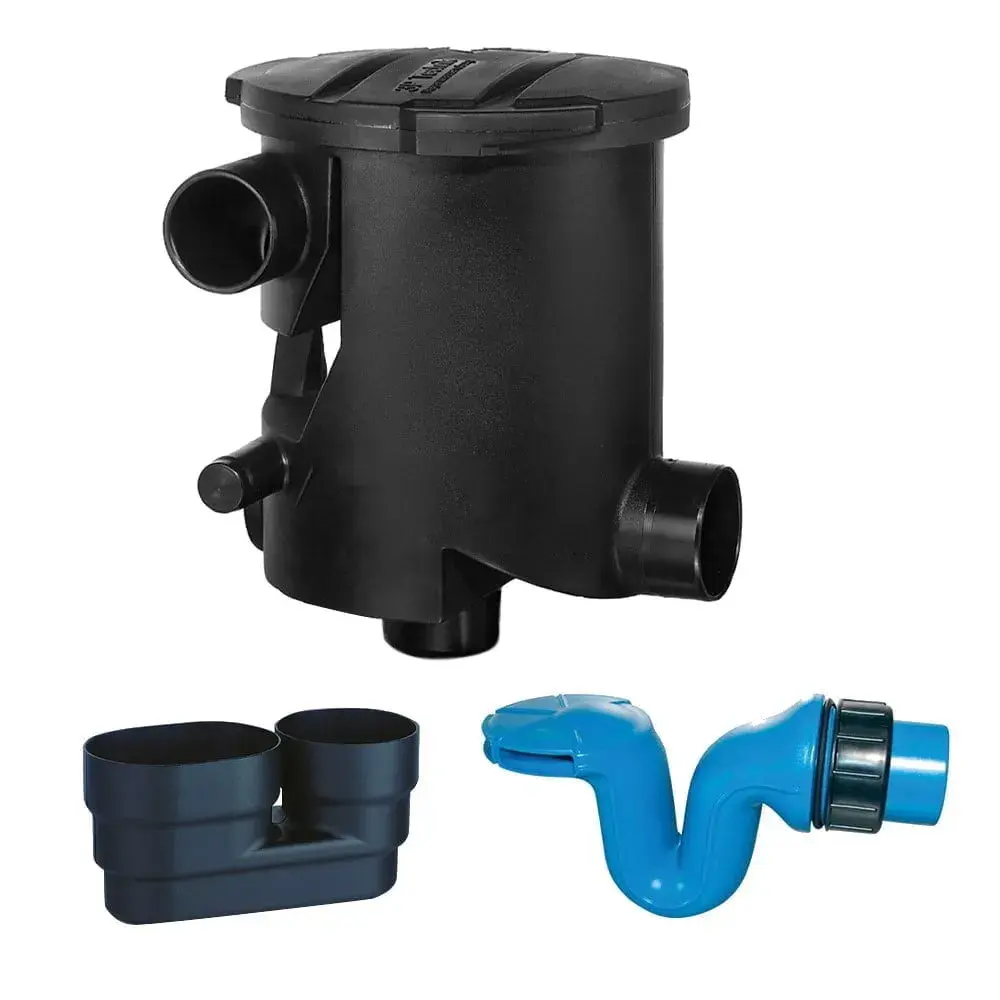Meat and poultry processing industries produce huge volumes of wastewater. This water is loaded with organic and inorganic material, including grit, faecal matter, pharmaceuticals, pathogens, and other substances. Meat and poultry wastewater requires significant treatment for safe discharge into the environment.
Due to the pollutant variability of this wastewater (depending on the number of animals and other factors) on-site wastewater management is recommended as the most effective treatment option. This article provides an overview of wastewater from the meat and poultry processing and available tanks from Enduramaxx.
What are the Characteristics of Abattoir Wastewater?
Wastewater from slaughterhouses can be incredibly harmful to the environment as it contains many harmful substances. These include high amounts of organic substances, fats, proteins, fibre, pathogens. There is also a large percentage of pharmaceuticals in slaughterhouse wastewater, administered to the animals for veterinary purposes.
These substances create incredibly high BOD (biochemical oxygen demand) and COD (chemical oxygen demand) levels. If left untreated this will create incredibly harmful effects on aquatic life and those who come into contact with the untreated water.
What are the Environmental Impacts of Slaughterhouse Wastewater?
The entire slaughterhouse process in addition to the cleaning involved creates large volumes of wastewater. Enduramaxx also provides blood collection storage tanks, specifically for use in abattoirs and slaughterhouses.
As mentioned, this wastewater contains large amounts of BOD, COD, Total Suspended Solids (TSS). Without proper treatment, the wastewater can harmfully impact the environment in several ways.
For one thing, it will reduce the amount of dissolved oxygen (DO) in the water, putting strain on aquatic life. Slaughterhouse wastewater contains a vast number of surfactants – a component of detergents. These are yet another variable that can create lasting damage.
Antibiotic-resistant bacteria and pathogens are also a concern for proper effluent treatment. These substances require a special focus as they are highly adaptable to conventional treatment methods.
Meat & Poultry Wastewater Treatment Processes
Like any wastewater treatment process, there are several stages involved:
- Preliminary
- Primary and Secondary
- Biological
Preliminary Treatment
The preliminary treatment removes large solids and other particles from the wastewater. By doing this at the beginning, it can remove up to 30% BOD. Thereby the wastewater is more easily treatable. Preliminary treatment can be carried out with screens, sieves, and other grit or particle removers.
Primary & Secondary Treatment
There are a variety of primary and secondary treatments that can be utilized.
DAF (dissolved air floatation), coagulation, flocculation, and sedimentation are among the most common methods used.
DAF
The process of DAF involves micro-air bubbles released throughout the water to float suspended solids to the surface where they can be then easily removed. This process is growing in popularity due to its efficiency, but it does use far more energy.
Coagulation, Flocculation, and Sedimentation
Coagulants can be used on untreated wastewater to clump together particles and solids into flocs. These flocs grow heavier and sink to the bottom of the tank enabling a straightforward sedimentation process. At Enduramaxx we stock a range of flocculation tanks to be used in this process.
Aeration Tanks can also promote the growth of organic material to influence the formation of flocs. This can be later removed during the sludge process.
Biological Treatments
Biological treatments, either anaerobic or aerobic, can rid wastewater of any remaining soluble after primary and secondary treatment methods. These methods are not only highly effective but economical, too.
Meat and Poultry Wastewater Processing – How Enduramaxx can help
Enduramaxx offers a wide range of Bulk Storage Tanks, aeration tanks, chemical tanks and clarification tanks for an efficient on-site wastewater treatment process for the meat and poultry industry.
We are more than happy to discuss treatment processes suitable for your needs and discuss our full range of product. Contact us today on 01778 562810.
Posts By Topics
- Blog (303)
- Chemical Storage Tanks (118)
- Chemical Dosing Tanks (114)
- Chemical Tanks (114)
- Water Tanks (58)
- Rainwater Harvesting Tanks (43)
- Vertical Rainwater Tanks (31)
- Vertical Storage Tanks (31)
- Cone Bottom Tanks (19)
- Conical Cone Tanks (18)
- Rainwater Harvesting (17)
- Water Bowsers (15)
- Horizontal Tanks (14)
- Potable Water Tanks (13)
- Farming (9)
- Case Studies (8)
- Industrial Storage Tanks (7)
- Liquid Fertilser Storage Tanks (6)
- WRAS Approved Potable Tanks (6)
- Wine and Beer Production (6)
- Horizontal Transport Tanks (5)
- Microbrewery (5)
- Rainwater (5)
- Category 5 Break Tanks (4)
- Cider Production (4)
- Mixer Tanks (4)
- Molasses Tanks (4)
- Polyethylene tanks (4)
- Rainwater Filter Kits (4)
- SPECIALIST & BESPOKE TANKS (4)
- Bunded Tanks (3)
- Slimline Tanks (3)
- WRAS Approved (3)
- Clarification Tanks (2)
- Crosslinked Polymer Tanks (XLPE) (2)
- Fertiliser Tanks (2)
- Sump Tanks (2)
- Tank Installation (2)
- Water Butt (2)
- underground water tanks (2)
- ACCESSORIES & FITTINGS (1)
- ATV & UTV SPRAYING UNITS (1)
- Above Ground Effluent Tanks (1)
- Bespoke Tank Frames (1)
- Category 5 Turret (1)
- Caustic Soda Tanks (1)
- Closed Top Bunded Tanks (1)
- Craft beer (1)
- Effluent Tanks (1)
- Enduramaxx (1)
- Ferric Chloride Tanks (1)
- Fire Safety Regulations (1)
- Fire Sprinkler Water Storage Tanks (1)
- Industrial Water Tank (1)
- Open Top Bunded Tanks (1)
- Open Top Cone Tanks (1)
- Open Top Vertical Tanks (1)
- Polyethylene Potable Water Tanks (1)
- Polyvinylidene Fluoride (PVDF) Tanks (1)
- Polyvinylidene Fluoride Tanks (PVDF) (1)
- Pressure Washers (1)
- Pro Series Spot Sprayers (1)
- RWH (1)
- Sodium Hydroxide Storage Tanks (1)
- Sprayer Fill-up Tanks (1)
- Uncategorised (1)
- liquid fertiliser tank (1)
Sign up to the newsletter
enduramaxx.marketing
Related Posts
75m3 Wastewater Tank for Lettuce Washing Plant - Enduramaxx
75m3 Wastewater Tank for Lettuce Washing Plant 75m3 Wastewater Tank for Lettuce Washing Plant...
Industrial Wastewater Treatment Using Microalgae
Industrial wastewater treatment using microalgae wastewater treatment systems can remove heavy...
Vegetable Wastewater Processing & Treatment Tanks
Vegetable Wastewater Processing & Treatment Tanks are involved in many of the typical wastewater...
Related Products
From £1,080.00 inc. VAT
£900.00 exc. VAT
From £1,344.00 inc. VAT
£1,120.00 exc. VAT
From £768.00 inc. VAT
£640.00 exc. VAT
£480.00 inc. VAT
£400.00 exc. VAT






